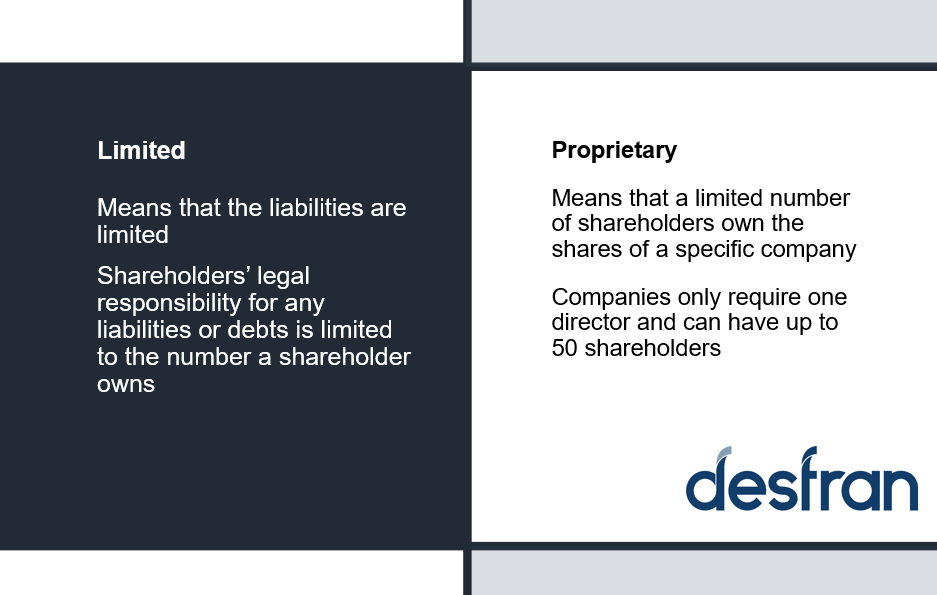A Guide To Proprietary Rights And Protection
Pty, an abbreviation meaning "proprietary," denotes ownership or exclusive rights to a company, product, or concept. For instance, "XYZ Pty Ltd." indicates a proprietary limited company.
The significance of pty lies in its legal and business implications, protecting intellectual property and establishing clear ownership. Historically, pty emerged in the 19th century as a way to differentiate private businesses from publicly traded companies.
This article delves into the multifaceted nature of pty meaning, exploring its legal implications, business applications, and historical evolution.
Pty Meaning
Understanding the essential aspects of pty meaning is crucial for comprehending its legal and business implications.
- Ownership
- Exclusivity
- Legal Protection
- Business Structure
- Private Company
- Limited Liability
- Historical Context
- Proprietary Rights
These aspects encompass the multifaceted nature of pty meaning, impacting business formation, intellectual property rights, and legal responsibilities. For instance, the exclusivity aspect ensures that the business or product remains under the control of its owners, while the legal protection aspect safeguards their rights and assets. Understanding these key aspects provides a comprehensive grasp of pty meaning and its significance in various contexts.
Ownership
Within the context of pty meaning, ownership holds paramount importance, defining the rights and responsibilities associated with a company or product.
- Control
Ownership implies having the authority to make decisions regarding the company's operations, management, and assets. - Profit
Owners are entitled to the profits generated by the company, as well as any capital gains upon its sale. - Liability
Depending on the business structure, owners may be personally liable for the company's debts and obligations. - Transferability
Ownership can be transferred to other parties through sale, inheritance, or other legal means.
These facets of ownership are intertwined with the concept of pty meaning, shaping the legal and financial aspects of business formation and operation. Understanding ownership rights and responsibilities is crucial for entrepreneurs and investors alike.
Exclusivity
Exclusivity, a cornerstone of pty meaning, safeguards ownership rights, innovation, and market position.
- Sole Proprietorship
Exclusivity grants the owner complete control over the business's operations, profits, and decision-making. - Intellectual Property Protection
Patents, trademarks, and copyrights provide exclusive rights to inventions, brands, and creative works, fostering innovation. - Market Differentiation
Exclusive products or services can create a competitive advantage, allowing businesses to stand out in the marketplace. - Customer Loyalty
Exclusive offerings can foster customer loyalty, as customers value the unique products or services provided.
These facets of exclusivity are integral to pty meaning, ensuring that businesses have the necessary legal protection and market advantage to thrive and succeed.
Legal Protection
Within the realm of pty meaning, legal protection stands as a bulwark, safeguarding the rights and assets of owners. This protection manifests in a multitude of forms, each playing a vital role in ensuring the integrity and success of proprietary endeavors.
- Intellectual Property Rights
Patents, trademarks, and copyrights provide exclusive ownership over creations of the mind, fostering innovation and protecting against infringement. - Limited Liability
Certain business structures, such as limited liability companies (LLCs), shield owners from personal liability for the debts and obligations of the business. - Contractual Agreements
Legally binding contracts establish clear terms and conditions, protecting the rights and interests of all parties involved in business transactions. - Legal Recourse
Owners have access to legal remedies, such as lawsuits and injunctions, to enforce their rights and seek compensation for damages.
These facets of legal protection are seamlessly interwoven with the very essence of pty meaning, providing a solid foundation upon which businesses can operate with confidence and achieve their full potential.
Business Structure
In the realm of "pty meaning", business structure emerges as a pivotal element, shaping the legal and operational framework of proprietary endeavors. The choice of business structure profoundly influences the distribution of ownership, liability, and management responsibilities, thereby affecting the overall success and longevity of the enterprise.
Consider the example of a sole proprietorship, where the owner is personally liable for all debts and obligations incurred by the business. This lack of separation between personal and business assets exposes the owner to significant financial risk. Conversely, a limited liability company (LLC) provides a distinct legal entity, shielding its owners from personal liability. This added layer of protection makes LLCs a popular choice for businesses seeking to minimize risk.
Understanding the connection between business structure and "pty meaning" is crucial for entrepreneurs and business owners. By selecting the appropriate structure, individuals can tailor their business to meet their specific needs and objectives. Proper structuring can optimize tax efficiency, protect personal assets, and establish a solid foundation for future growth and success.
Private Company
In the context of "pty meaning", the concept of a private company holds significant relevance. A private company, as the name suggests, is a business entity whose ownership is restricted to a limited number of individuals or entities, as opposed to being publicly traded on stock exchanges. This distinction between public and private companies has a profound impact on the interpretation and implications of "pty meaning".
A key aspect of "pty meaning" lies in the notion of exclusive ownership and control. Private companies embody this concept by concentrating decision-making authority and profit distribution among a select group of shareholders. This exclusive ownership structure aligns with the "pty" designation, which denotes proprietary rights and limitations on public access to the company's operations and financial information.
Practical applications of this understanding can be observed in various sectors. For instance, family-owned businesses often adopt the private company model to maintain control within a close-knit group while safeguarding their proprietary knowledge and assets. Similarly, start-ups and venture capital-backed companies frequently utilize private company structures to attract investors and manage ownership stakes during their growth phases.
In summary, the connection between "private company" and "pty meaning" centers around the theme of exclusive ownership and control. Private companies, by their very nature, embody the proprietary aspects of "pty meaning" and provide a legal and operational framework for businesses seeking to maintain privacy, limit external influence, and preserve their proprietary assets.
Limited Liability
The concept of Limited Liability stands as a pivotal component within the realm of "pty meaning", shaping the legal framework and risk profile of proprietary entities. Limited Liability, as its name implies, denotes a legal structure whereby the personal assets and liabilities of owners are shielded from the obligations and debts incurred by their business ventures. This separation between personal and business finances plays a crucial role in understanding the implications of "pty meaning".
The significance of Limited Liability to "pty meaning" lies in its ability to incentivize entrepreneurial endeavors and promote economic growth. Without the protection afforded by Limited Liability, individuals would face substantial personal financial risk when starting or operating a business. This would deter many from pursuing entrepreneurial ventures, thereby stifling innovation and limiting economic prosperity.
Real-life examples of Limited Liability within "pty meaning" abound. Sole proprietorships, partnerships, and limited liability companies (LLCs) are all business structures that incorporate the principle of Limited Liability. In each case, the owners' personal assets are safeguarded from business-related claims, fostering a conducive environment for risk-taking and investment.
Understanding the practical applications of Limited Liability within "pty meaning" empowers individuals to make informed decisions regarding their business ventures. By choosing a business structure that aligns with their risk tolerance and financial goals, entrepreneurs can optimize their chances of success while minimizing personal financial exposure. Moreover, it provides a solid foundation for attracting investors and securing financing, as lenders are more likely to support ventures where the owners' personal assets are not at stake.
Historical Context
The historical context of "pty meaning" adds depth to our understanding of its legal and business implications. From ancient roots to modern applications, the concept of proprietary ownership has evolved over time, shaping the way we conduct business and protect our assets.
- Ancient Origins
The concept of proprietary ownership can be traced back to ancient civilizations, where individuals and groups claimed exclusive rights over land, livestock, and other valuable resources.
- Medieval Guilds
During the Middle Ages, guilds emerged as associations of craftsmen and merchants who shared proprietary knowledge and protected their members' economic interests.
- Joint-Stock Companies
The development of joint-stock companies in the 17th century allowed multiple investors to pool their resources and share in the profits and risks of a business venture.
- Limited Liability
The concept of limited liability emerged in the 19th century, providing legal protection for business owners by separating their personal assets from those of the company.
These historical facets have laid the groundwork for the modern understanding of "pty meaning", influencing the legal frameworks, business structures, and economic practices we have today. By exploring the historical context, we gain a deeper appreciation for the evolution and significance of proprietary rights in the business world.
Proprietary Rights
Within the context of "pty meaning", Proprietary Rights hold paramount importance, encompassing the exclusive legal rights associated with the ownership of property, creations, or other intangible assets. These rights empower individuals and entities to control, use, and benefit from their proprietary interests.
- Ownership
The core aspect of proprietary rights, ownership grants individuals or entities exclusive control over their property, including physical assets, intellectual creations, and proprietary information.
- Exclusive Use
Proprietary rights provide the exclusive right to use and enjoy one's property or creations without interference from others.
- Transferability
Owners possess the right to transfer or sell their proprietary rights to others, whether through sale, inheritance, or other legal means.
- Protection
Proprietary rights are protected by law, providing legal remedies against infringement or unauthorized use.
In summary, Proprietary Rights constitute a fundamental aspect of "pty meaning", encompassing the legal framework that safeguards the exclusive ownership, use, and transferability of property and intangible assets. These rights serve as the cornerstone of innovation, creativity, and economic growth, empowering individuals and entities to protect and leverage their proprietary interests.
In delving into the intricacies of "pty meaning", this article has shed light on pivotal concepts that shape the legal and business landscape. Firstly, the principle of proprietary rights emerges as a cornerstone, emphasizing the exclusive ownership, use, and control over property and intangible assets. This framework fosters innovation, creativity, and economic growth.
Furthermore, the exploration of limited liability underscores its significance in incentivizing entrepreneurial endeavors and promoting risk-taking. By safeguarding personal assets from business-related liabilities, limited liability provides a conducive environment for investment and financial security.
These interconnected ideas converge to underscore the profound implications of "pty meaning" in various sectors. From startups and family-owned businesses to large corporations, understanding and leveraging proprietary rights and limited liability are essential for safeguarding interests, fostering growth, and navigating the complexities of the business world.
Unveiling The World Of Mika Reyes' Husband: A Behind-the-Scenes Look
Nina Garcia David Conrod: A Fashion Icon's Journey
Unveiling The Enigma: What Happened To Boruto's Eye?



ncG1vNJzZmirpaWys8DEmqRvZpGiwHR6w6KeoqyRobykscCnqqmZk5rAb6%2FOpmaprKliuqatzaKloGaYqbqt